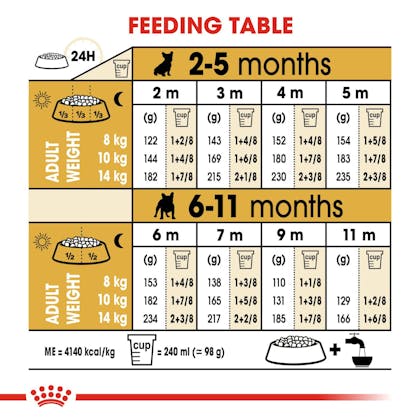When it comes to feeding your French Bulldog, choosing the right food is essential for their health and well-being. Did you know that French Bulldogs have specific dietary needs due to their brachycephalic breed? This means their short snouts and flat faces can make it difficult for them to eat certain types of food. So, what should you feed your French Bulldog to keep them happy and healthy?
French Bulldogs require a high-quality, balanced diet that is tailored to their unique needs. They are prone to certain health issues such as allergies, digestive problems, and obesity, so it’s crucial to feed them a diet that addresses these concerns. Look for a dog food that is specifically formulated for small breeds or brachycephalic breeds. These foods often have smaller kibble size, making it easier for your French Bulldog to chew and digest their meals. Additionally, opt for dog food that is made from high-quality ingredients, such as real meat as the primary source of protein.
When choosing food for your French Bulldog, it’s important to consider their specific needs. Look for a high-quality dog food that is formulated for small breeds, such as French Bulldogs. Check the ingredients list to ensure it contains lean proteins, healthy fats, and easily digestible carbohydrates. Avoid foods with artificial colors, flavors, and preservatives. Consult with your veterinarian for personalized recommendations based on your dog’s age, activity level, and any specific dietary needs they may have.

What Food Should I Feed My French Bulldog?
French Bulldogs are adorable and lovable companions, but when it comes to their diet, it’s essential to provide them with the right nutrition. The food you choose for your French Bulldog can directly impact their overall health, energy levels, and even their skin and coat quality. So, what food should you feed your French Bulldog to keep them happy and healthy? Let’s explore some essential considerations and guidelines to help you make the best decision for your furry friend.
1. Importance of High-Quality Dog Food
When it comes to feeding your French Bulldog, high-quality dog food is of utmost importance. Opt for a reputable brand that provides complete and balanced nutrition specifically formulated for small or medium-sized breeds. Look for dog food that meets the Association of American Feed Control Officials (AAFCO) standards, as this ensures it contains the necessary nutrients for your Frenchie’s well-being.
High-quality dog food should have a good balance of protein, fats, and carbohydrates. French Bulldogs require a moderate amount of protein for muscle development and maintenance. Additionally, they can benefit from healthy fats, like Omega-3 fatty acids, which support their joint health and promote a shiny coat. Carbohydrates should come from easily digestible sources like whole grains and vegetables.
It’s also essential to avoid dog food that contains artificial additives, fillers, and by-products. These ingredients can be harder for your Frenchie to digest and may contribute to allergies or digestive issues. Opt for natural and wholesome ingredients with no artificial colors, flavors, or preservatives.
2. Consider Your French Bulldog’s Age and Health Needs
The nutritional needs of your French Bulldog may vary depending on their age and specific health needs. Puppies, adult dogs, and senior dogs have different dietary requirements, so it’s important to choose food that caters to their stage of life.
If you have a French Bulldog puppy, opt for a high-quality puppy formula specifically designed to support their growth and development. These formulas typically contain higher levels of protein and essential nutrients like DHA, which is crucial for brain development.
For adult French Bulldogs, a well-balanced dog food formulated for their breed size and activity level is ideal. If your Frenchie has any specific health concerns, such as allergies or sensitivities, consult with your veterinarian to determine if a specialized diet is necessary.
3. Raw Food Diet Vs. Commercial Dog Food
There has been a growing trend towards raw food diets for dogs, including French Bulldogs. Raw food diets consist of uncooked meat, bones, fruits, and vegetables. While some dog owners swear by the benefits of a raw food diet, it’s essential to understand the potential risks and challenges associated with this feeding method.
A raw food diet requires careful planning to ensure your Frenchie receives all the necessary nutrients. It can be challenging to achieve a proper balance of proteins, fats, and carbohydrates without professional guidance. Additionally, there is a risk of bacterial contamination when handling raw meat.
On the other hand, commercial dog food often undergoes rigorous testing to ensure it meets the necessary nutritional standards. It provides a convenient and balanced option for feeding your French Bulldog. If you’re considering a raw food diet, consult with a veterinarian or veterinary nutritionist to ensure you’re providing a safe and nutritionally complete diet.
4. Common Food Allergies and Sensitivities
French Bulldogs, like other dog breeds, can be prone to food allergies and sensitivities. Some common allergens include beef, chicken, wheat, dairy, and soy. If your Frenchie exhibits signs of allergies, such as itching, gastrointestinal issues, or skin irritations, it may be necessary to switch to a hypoallergenic or limited ingredient dog food.
Hypoallergenic dog foods are made with novel protein sources like venison, duck, or fish, which are less likely to cause allergic reactions. These formulas also eliminate common allergens like wheat, corn, and soy. A limited ingredient diet contains a minimal number of ingredients to reduce the risk of triggering allergies or sensitivities.
5. Feeding Tips and Considerations
Here are some additional tips and considerations when feeding your French Bulldog:
- Establish a consistent feeding schedule and avoid leaving food out all day. Most adult French Bulldogs require two meals per day.
- Measure your Frenchie’s food portion according to their weight and follow the recommended guidelines provided by the dog food manufacturer.
- Monitor your Frenchie’s weight and adjust their food portion accordingly. French Bulldogs are prone to obesity, so it’s important to maintain a healthy weight.
- Provide fresh water at all times and clean your Frenchie’s food and water bowls regularly to prevent bacterial growth.
- Avoid feeding your Frenchie table scraps or foods that are toxic to dogs, such as chocolate, onions, grapes, and raisins.
- Consider using puzzle toys or slow-feeders to make mealtime more engaging and prevent your Frenchie from eating too quickly.
Ensuring a Happy and Healthy French Bulldog
Feeding your French Bulldog the right food is an essential part of their overall health and well-being. Choose a high-quality, balanced dog food that meets their specific needs. Consider their age, potential allergies, and any health concerns they may have. Whether you opt for commercial dog food or a raw food diet, ensure you’re providing the necessary nutrients and consult with a veterinarian if needed. By feeding your French Bulldog the right food, you’re setting them up for a happy and healthy life!
Key Takeaways: What Food Should I Feed My French Bulldog?
- Choose a high-quality dog food specifically formulated for French Bulldogs.
- Look for dog food that is rich in protein and low in grains and fillers.
- Avoid foods with artificial preservatives, colors, and flavors.
- Consider your French Bulldog’s age, size, and any specific health concerns when selecting their food.
- Consult with your veterinarian for personalized recommendations for your French Bulldog’s dietary needs.
Frequently Asked Questions
Are you unsure about what food to feed your French Bulldog? It’s essential to provide them with a balanced diet to ensure their overall health and well-being. Here are some commonly asked questions and their answers to help you make the best food choices for your furry friend.
1. Can I feed my French Bulldog a commercial dog food?
Yes, you can feed your French Bulldog commercial dog food. However, it’s important to choose a high-quality brand that is specifically formulated for small breeds or French Bulldogs. Look for products that contain real meat as the main ingredient and avoid those with artificial additives or fillers. Reading the ingredient list and consulting with your veterinarian can help you select the right commercial dog food for your French Bulldog.
Additionally, it’s crucial to follow the recommended feeding guidelines provided by the manufacturer. These guidelines take into account the age, weight, and activity level of your French Bulldog, ensuring they receive the appropriate amount of nutrients.
2. Can I feed my French Bulldog a homemade diet?
Feeding your French Bulldog a homemade diet can be an option, but it requires careful planning and consultation with a veterinary nutritionist. A homemade diet should include a combination of lean protein sources, such as chicken or turkey, healthy fats, whole grains, and a variety of fruits and vegetables. Avoid including ingredients that are toxic to dogs, such as onions, garlic, and chocolate.
Keep in mind that creating a nutritionally balanced homemade diet can be challenging, and it’s important to work with a professional to ensure your French Bulldog is getting all the necessary nutrients. Your veterinarian can recommend veterinary nutritionists who can develop a customized diet plan for your French Bulldog.
3. Should I feed my French Bulldog a raw food diet?
Feeding your French Bulldog a raw food diet is a personal choice and comes with both potential benefits and risks. Raw food diets consist of uncooked meat, bones, organs, and vegetables. Proponents of raw diets claim that it improves digestion, promotes healthier coat and skin, and boosts energy levels.
However, it’s important to note that raw food diets may increase the risk of bacterial contamination and can be nutritionally imbalanced if not properly prepared. It’s essential to consult with a veterinarian before transitioning your French Bulldog to a raw food diet to ensure it is appropriate for their specific needs.
4. Are there any foods that I should avoid feeding my French Bulldog?
Yes, there are several foods that you should avoid feeding your French Bulldog as they can be harmful to their health. Some common foods that are toxic to dogs include chocolate, caffeine, onions, garlic, grapes, and raisins. These foods can cause various health issues, ranging from gastrointestinal upset to more severe conditions.
It’s also important to avoid feeding your French Bulldog fatty or fried foods, as they can lead to weight gain and other health problems. Always check with your veterinarian if you’re unsure about whether a specific food is safe for your French Bulldog to consume.
5. How often should I feed my French Bulldog?
The frequency of feeding your French Bulldog depends on their age and activity level. Puppies typically require more frequent meals, with three to four small meals a day. As they mature, you can gradually transition to two meals a day. It’s important to establish a consistent feeding schedule and avoid free-feeding to help regulate their digestion and prevent obesity.
Consult with your veterinarian to determine the appropriate portion sizes and feeding schedule for your French Bulldog based on their individual needs.

In summary, when it comes to feeding your French Bulldog, it’s important to prioritize their nutritional needs and choose a high-quality dog food that is specifically formulated for small breeds. Look for a balanced diet that includes lean protein, healthy fats, complex carbohydrates, and essential vitamins and minerals.
Avoid foods that are high in fillers, artificial additives, and ingredients that could be potential allergens. It’s also important to consult with your veterinarian to determine the appropriate portion sizes and feeding schedule for your individual dog. By providing your French Bulldog with the right food, you can promote their overall health and well-being.
